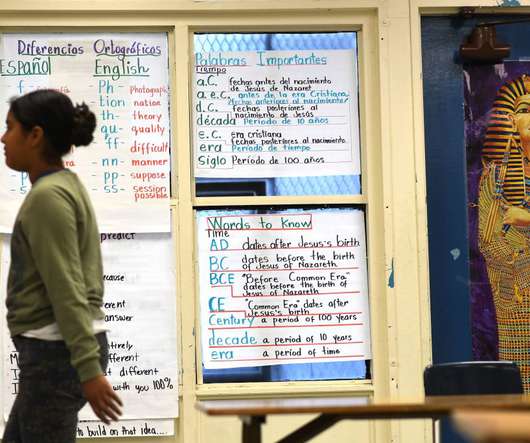Turning ‘Google Maps for Education’ From Metaphor to Reality
Edsurge
JULY 14, 2018
The existing standards for this kind of data were like a Babylon of different languages, understood only in their own domain (such as medical training, human resources, K-12 or postsecondary). The IEEE Learning Technology Standards Committee (LTSC) plans to update its existing standards based on this work. K-12 learners.

















Let's personalize your content